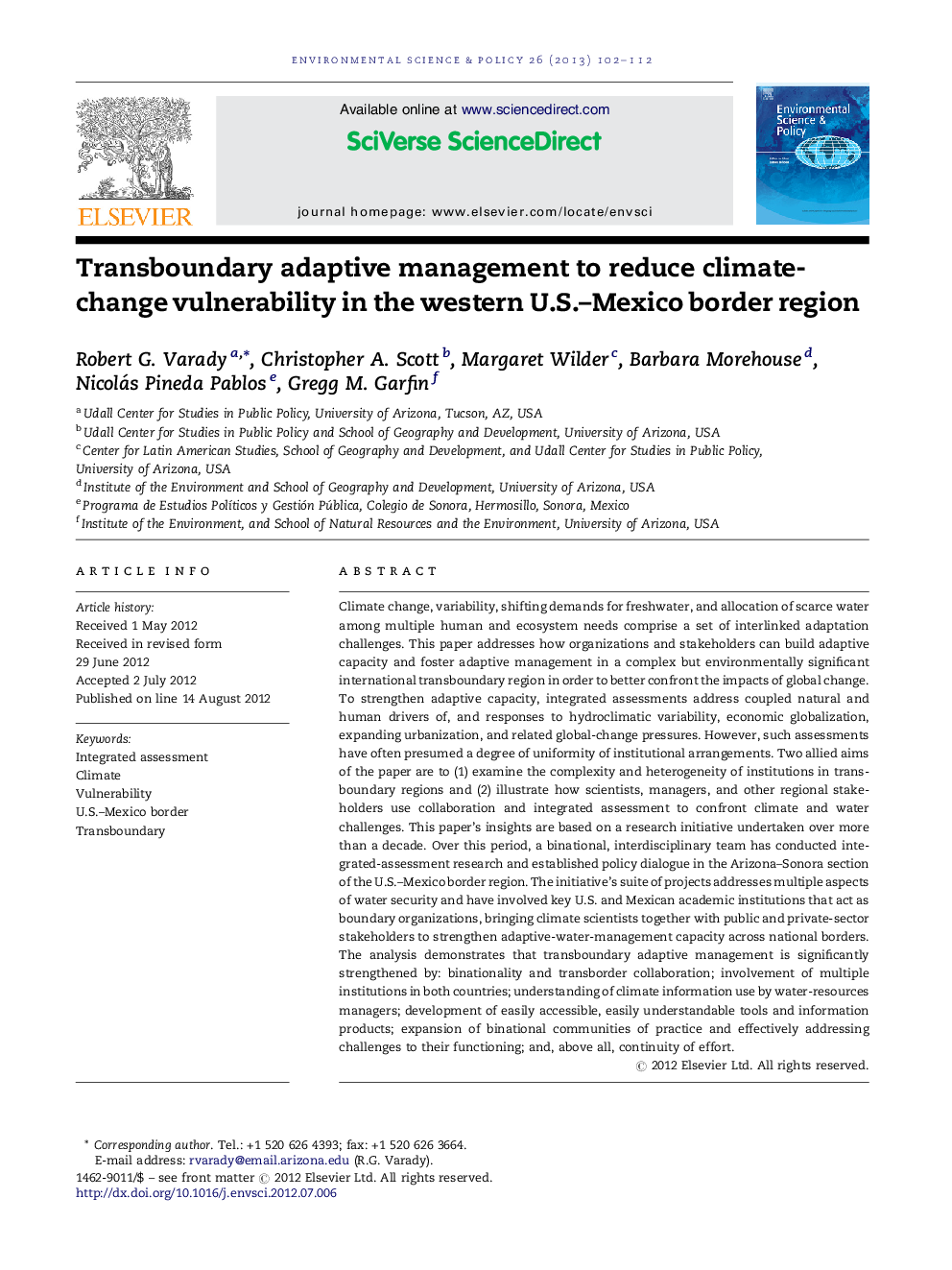| کد مقاله | کد نشریه | سال انتشار | مقاله انگلیسی | نسخه تمام متن |
|---|---|---|---|---|
| 1053717 | 1485080 | 2013 | 11 صفحه PDF | دانلود رایگان |

Climate change, variability, shifting demands for freshwater, and allocation of scarce water among multiple human and ecosystem needs comprise a set of interlinked adaptation challenges. This paper addresses how organizations and stakeholders can build adaptive capacity and foster adaptive management in a complex but environmentally significant international transboundary region in order to better confront the impacts of global change. To strengthen adaptive capacity, integrated assessments address coupled natural and human drivers of, and responses to hydroclimatic variability, economic globalization, expanding urbanization, and related global-change pressures. However, such assessments have often presumed a degree of uniformity of institutional arrangements. Two allied aims of the paper are to (1) examine the complexity and heterogeneity of institutions in transboundary regions and (2) illustrate how scientists, managers, and other regional stakeholders use collaboration and integrated assessment to confront climate and water challenges. This paper's insights are based on a research initiative undertaken over more than a decade. Over this period, a binational, interdisciplinary team has conducted integrated-assessment research and established policy dialogue in the Arizona–Sonora section of the U.S.–Mexico border region. The initiative's suite of projects addresses multiple aspects of water security and have involved key U.S. and Mexican academic institutions that act as boundary organizations, bringing climate scientists together with public and private-sector stakeholders to strengthen adaptive-water-management capacity across national borders. The analysis demonstrates that transboundary adaptive management is significantly strengthened by: binationality and transborder collaboration; involvement of multiple institutions in both countries; understanding of climate information use by water-resources managers; development of easily accessible, easily understandable tools and information products; expansion of binational communities of practice and effectively addressing challenges to their functioning; and, above all, continuity of effort.
► Binational, U.S.–Mexico study of integrated assessment research and outreach.
► Interface of a developing country and a developed nation.
► Interdisciplinary study of climate threats to water supplies, populations, ecosystems.
► Identification of adaptation prospects.
► Opportunities/cautions on ability of integrated assessment to enhance adaptation.
Journal: Environmental Science & Policy - Volume 26, February 2013, Pages 102–112